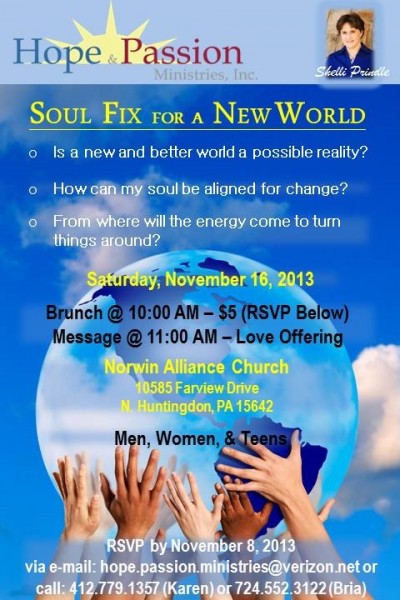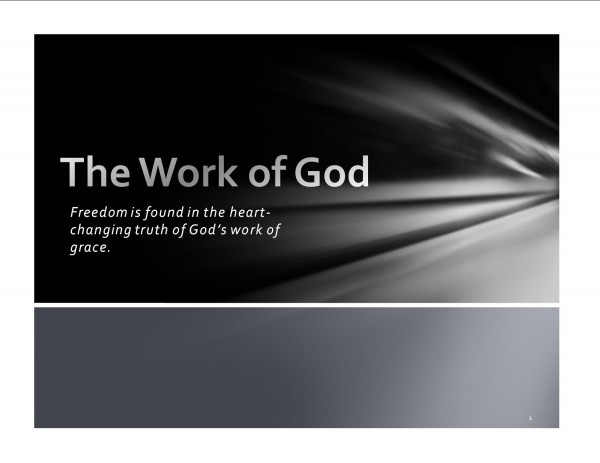Just some weeks into the Israelites’ adventure in the wilderness following their miraculous exodus from Egypt, God’s people began grumbling against Moses and Aaron because they were hungry. Recall that these people had watched God send massive plagues (including the plague of death) to ensure their freedom from Pharaoh, they had seen the application of blood over their doorposts stop the death angel cold in his tracks, and they had watched with mouths agape as God divided the sea in half for their safe pilgrimage. And still, the Israelites make the wrong assumption that God has brought them all this way to kill them (Exodus 16:3).
As they continue complaining about their hunger, I can only imagine God’s thoughts. If I were God (and – wow – are we thankful I am not), I would have looked at the lot of them and said, “You ungrateful brats! Don’t you see what I have done? Do you really believe I have rescued you to kill you?” Thankfully, this is not what God says. I, myself, am particularly grateful for this fact; for I am one of the ungrateful, unbelieving brats.
God answers their complaining doubt by saying, “Behold, I will rain bread from heaven for you” (Exodus 16:4). God is truly “something else,” isn’t He? It truly is all about Him. Even after I have trusted Him for salvation, I still fail. But God is faithful!
The detail we should highlight here is God’s prescription for the manna. He told the Israelites to collect enough for each day one day at a time. (Exodus 16:4) Throughout the week, they were to collect only enough for the day at hand and not stockpile it for the next day. Moses reiterated, “Let no man leave any of it until morning” (Exodus 16:19).
As we can imagine (because we know ourselves well), some of the people left manna from one day until the following morning. The results were very repulsive. The manna left over for the next day “bred worms and became foul” (Exodus 16:20). Smelly manna teeming with maggots is not what the Israelites had in mind! Yet, this was the result for those who tried to carry one day’s portion into the next day.
The question becomes, “Why?” Why did God do this? The answer is clear and confirmed in many other portions of the Bible. God wants us to trust Him and not ourselves and all our efforts.
People who hoarded the bread for the next day either did not believe God would rain down manna in the morning as He promised, or they did not believe God would give them strength the next day to go collect it. Either way, they did not trust the Living Lord. My friends, He wants us to know that He will be there tomorrow morning with all the provision of food, strength, and sanity that we need. We are not to work by our own efforts to devise a way to survive; relationship with and trust in God are our only ways to survive.
Jesus confirms this emphasis in the Gospel of John, Chapter 6. When large crowds cross a body of water to be with Him, He does not employ “seeker-friendly” techniques. He chastises the crowd by informing them that they have followed Him for the wrong reasons; they have only come because their hungry stomachs had been filled when He had performed the miracle with the fish and bread. Jesus proceeds to tell the crowd, “I am the living bread that came down out of heaven” (John 6:51a).
The crowd was into following Jesus because of His miracles that satisfied their fleshly desires. The people even brought up the miracle of manna in the wilderness of which we have been speaking (John 6:31). But Jesus was sure to emphasize that though the recipients of this manna had eaten it, they still died an earthly death. The physical manna was not the key. The key is trust in the God who gives the manna.
Jesus told the crowd He is the Living Bread. He is letting us know that we should trust the one who never sleeps, never gets ill, never gives up, and never dies. God is alive. God will be there in the morning when we awake to give to us everything we need to live the next day. Do not mistrust Him by trying on your own to make things work and trying to ensure your own destiny. Jesus is alive. If we trust Him, He will provide – one moment at a time.
Be sure of this, any plans or efforts employed outside of pure trust in Him will produce repulsive results, similar to the manna teeming with maggots. However, the person who trusts in the Living God – and follows His instructions by faith – will see provision at all times.
“Then the LORD said to Moses, ‘Behold, I will rain bread from heaven for you; and the people shall go out and gather a day’s portion every day. . .'” – Exodus 16:4 (NASB)



